Secure your place at the Digiday Media Buying Summit in Nashville, March 2-4

Google’s navigation app Waze helps drivers get to their destinations quickly. Simultaneously, it sells ads that try to convince drivers to alter their routes. Branded pins, for example, could highlight a nearby restaurant or retail store.
Waze recently partnered with WPP to help grow its ad business. “The goal is to deliver a better experience for drivers and a better experience for brands — more contextual, better targeted — than what is available today through traditional mediums such as radio and billboards,” said Sanja Partalo, svp, corporate strategy and digital development at WPP.
Digiday obtained a recent pitch deck by a sales representative at Waze from a source at a U.S. ad agency. The deck describes Waze’s audience in the U.S. — 29 million monthly active users who spend 10.5 hours per month on the app, on average — and shares examples of previous Waze campaigns from brands such as Outback Steakhouse, McDonald’s and 99 Cents Only Stores.
Ad buyers, with clients in retail and food, said they see Waze as an effective and inexpensive option. Ads on Waze start at $2 per day for a business advertising one location, according to a pitch deck Digiday obtained last May, and are sold at cost-per-impression. But buyers recently have asked about more personalization and targeting options. Google and Waze don’t share data with each other, so advertisers cannot target Waze users based on their Google data — at least for now.
Google doesn’t break out how much revenue Waze makes in its earnings, but the audience is evidently much smaller than Google overall. Waze has 115 million monthly active users in total, as of the WPP partnership announcement in February.
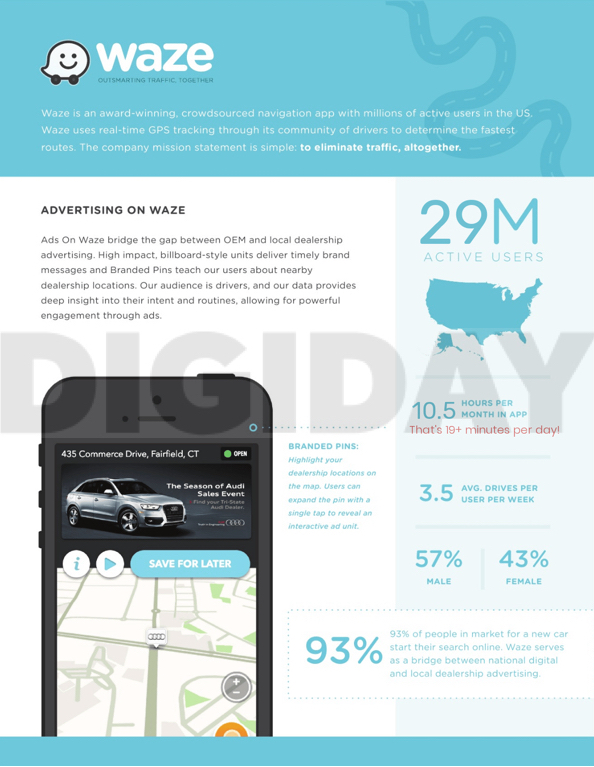
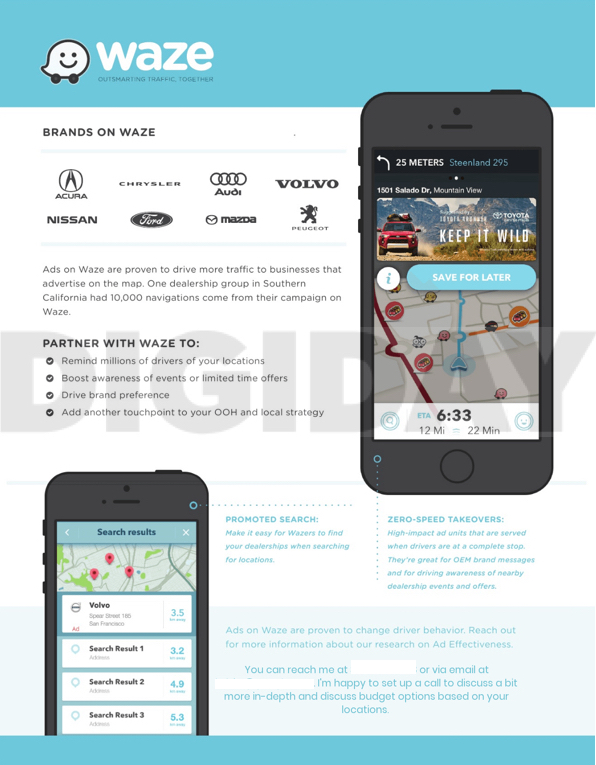
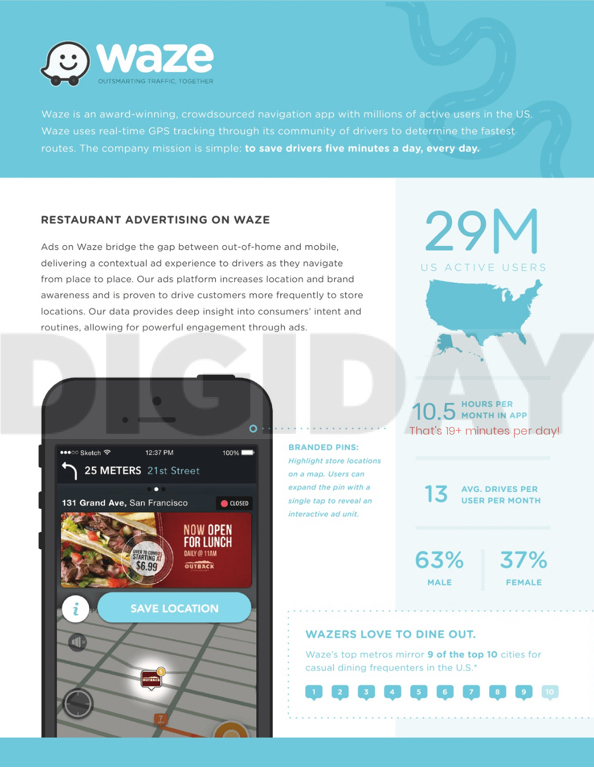
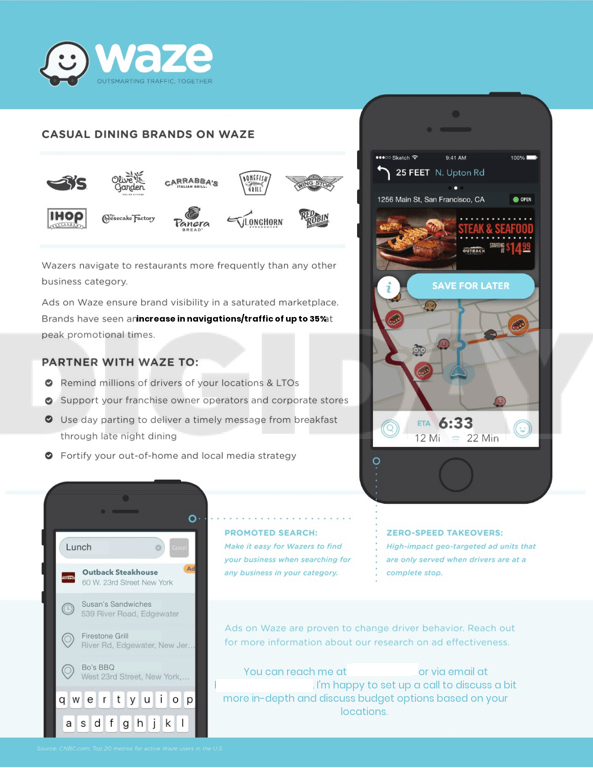
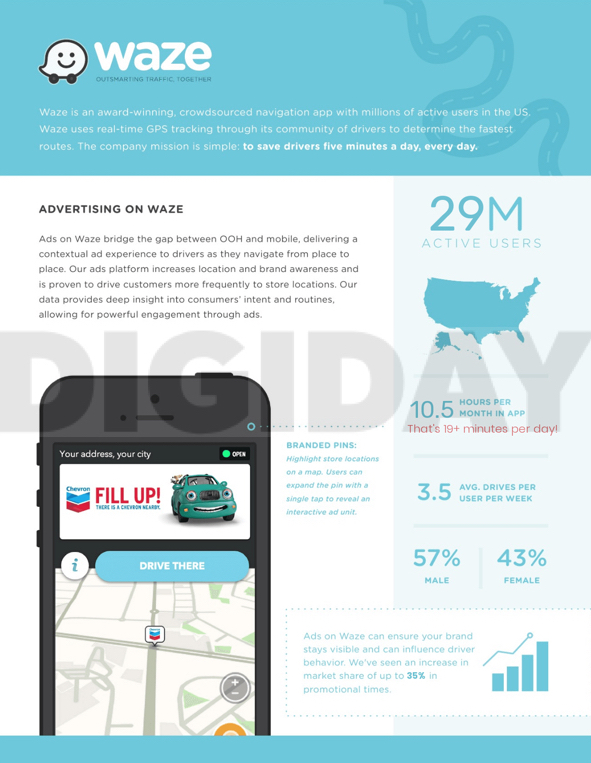
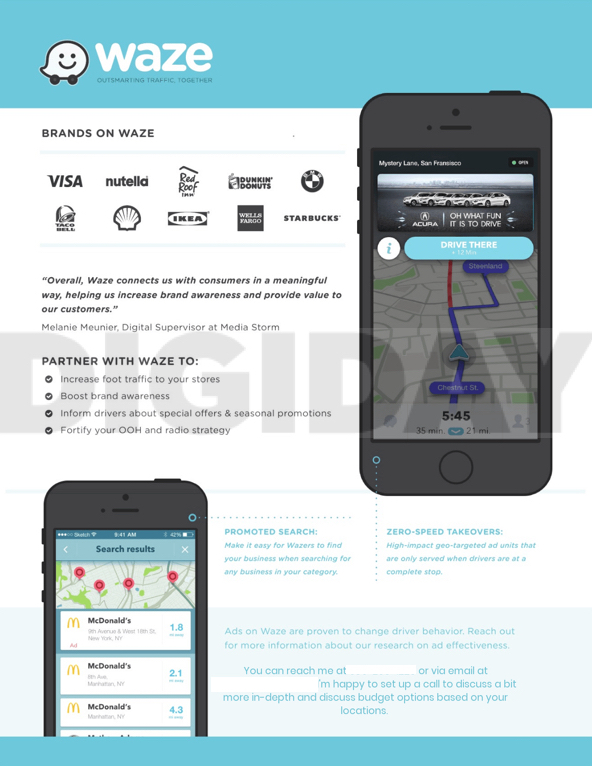
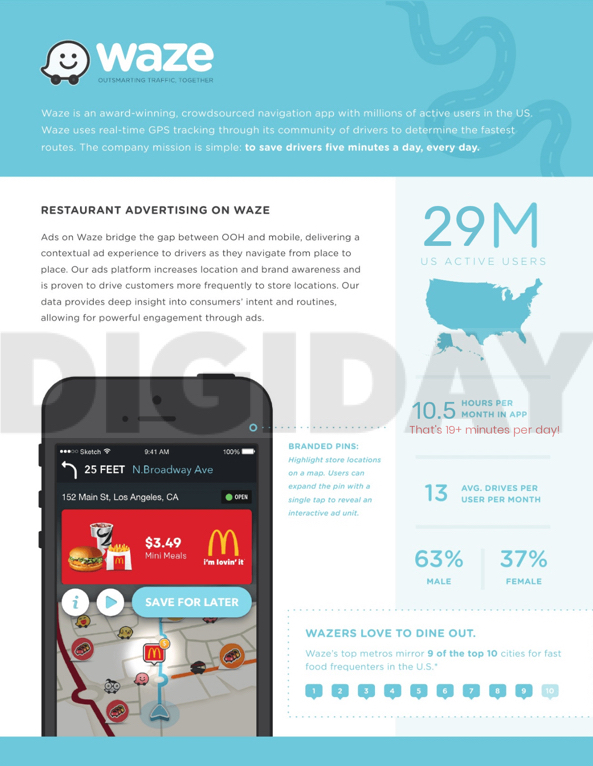
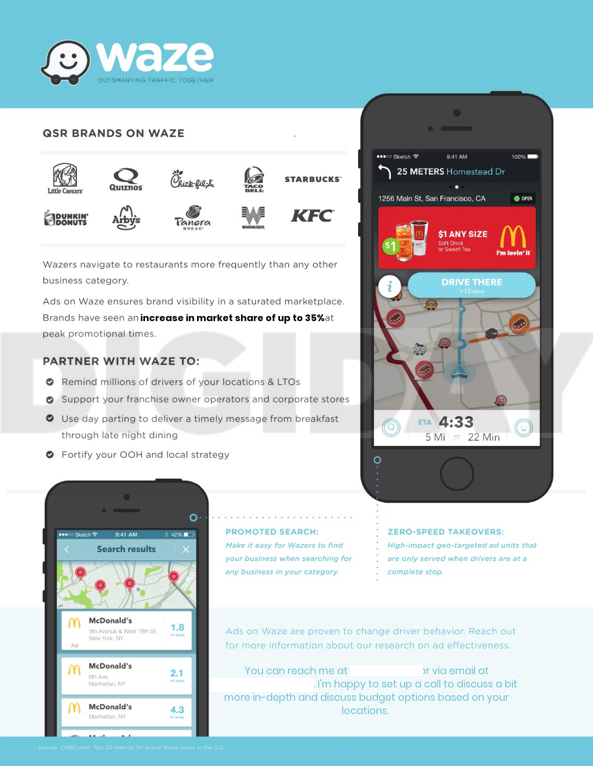
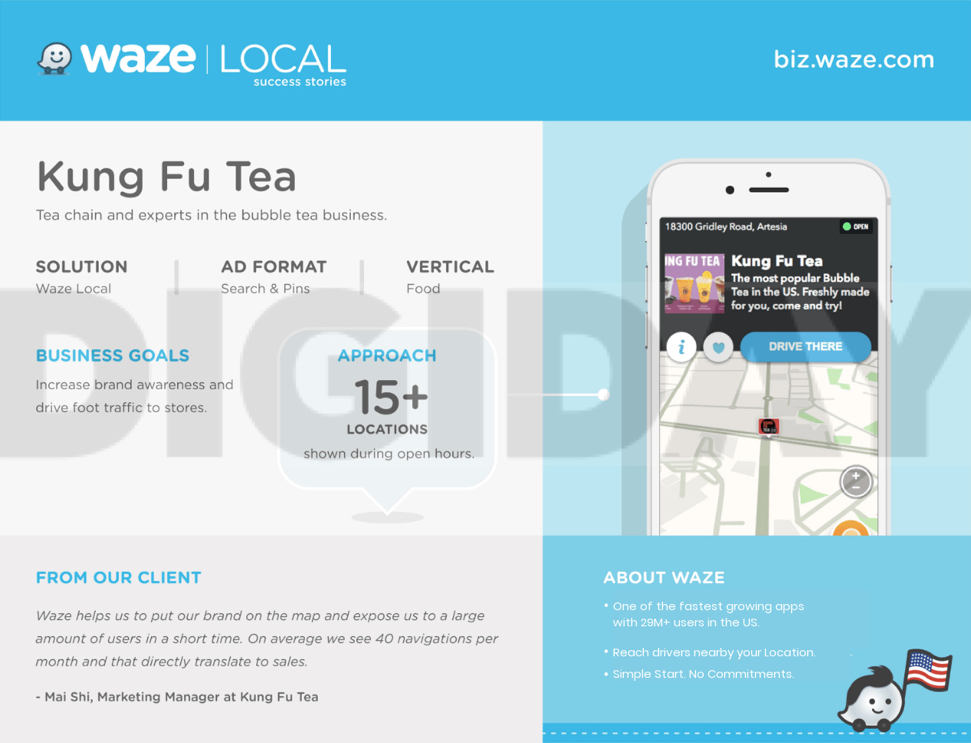
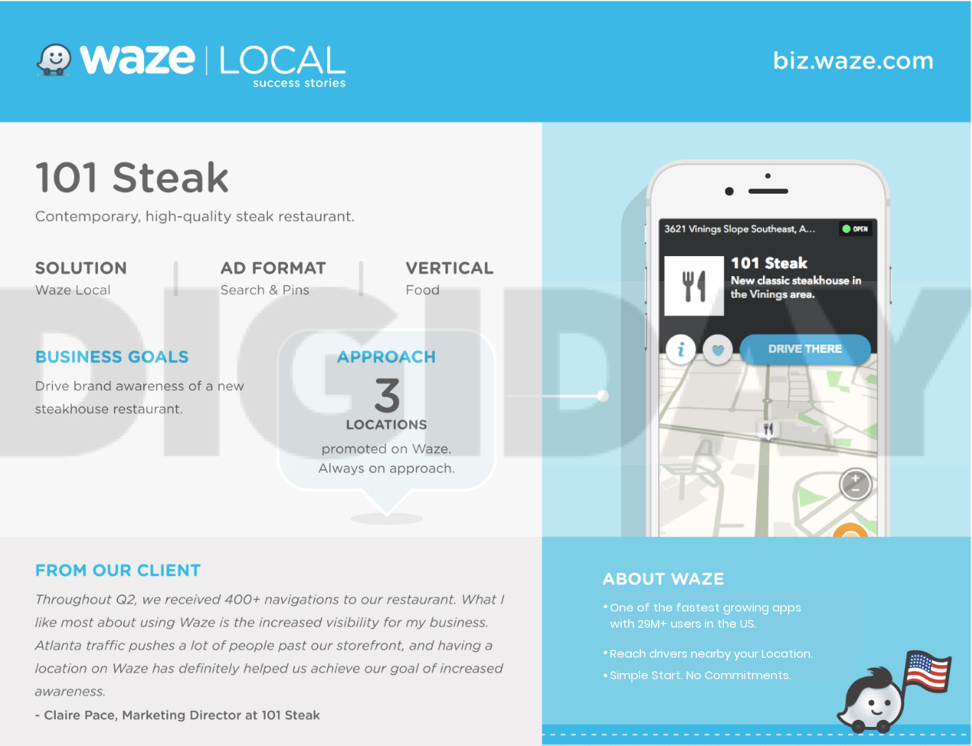
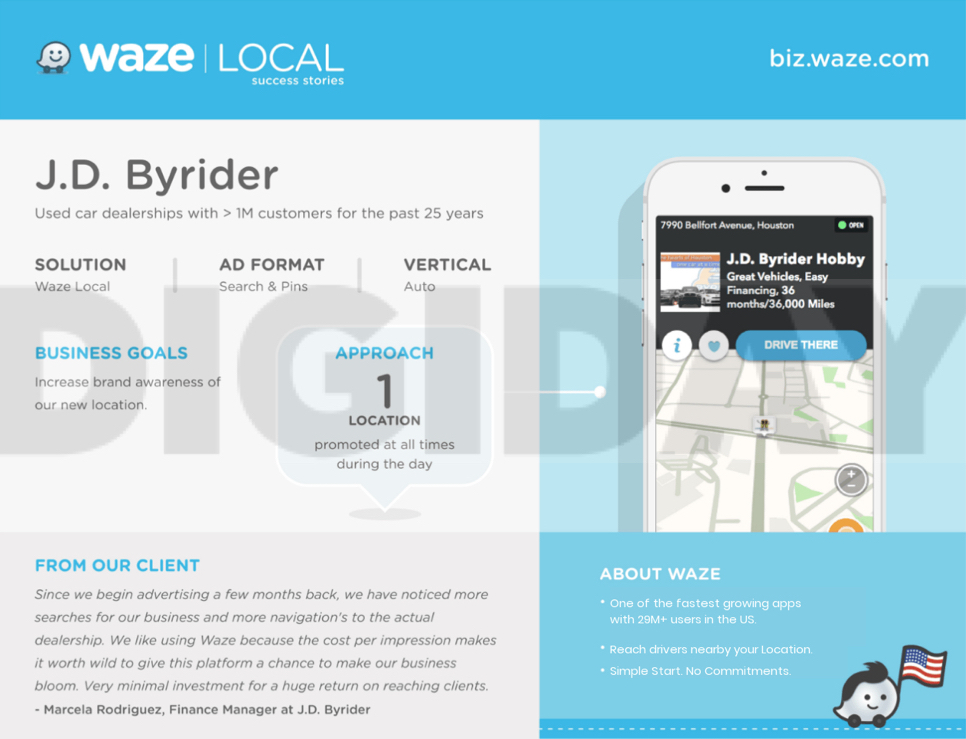
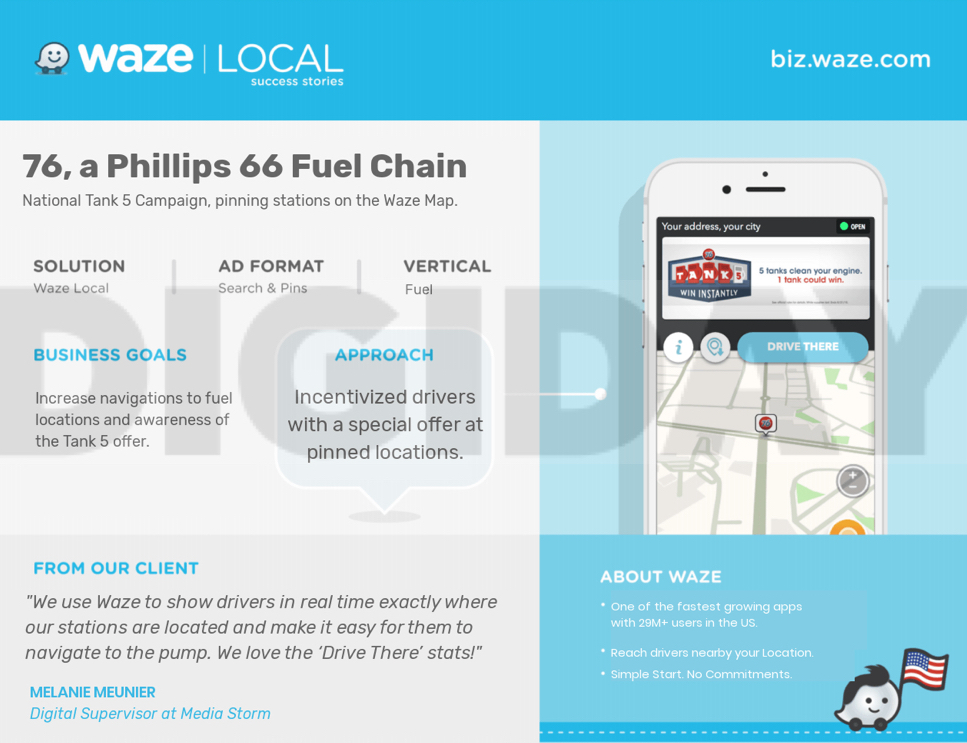
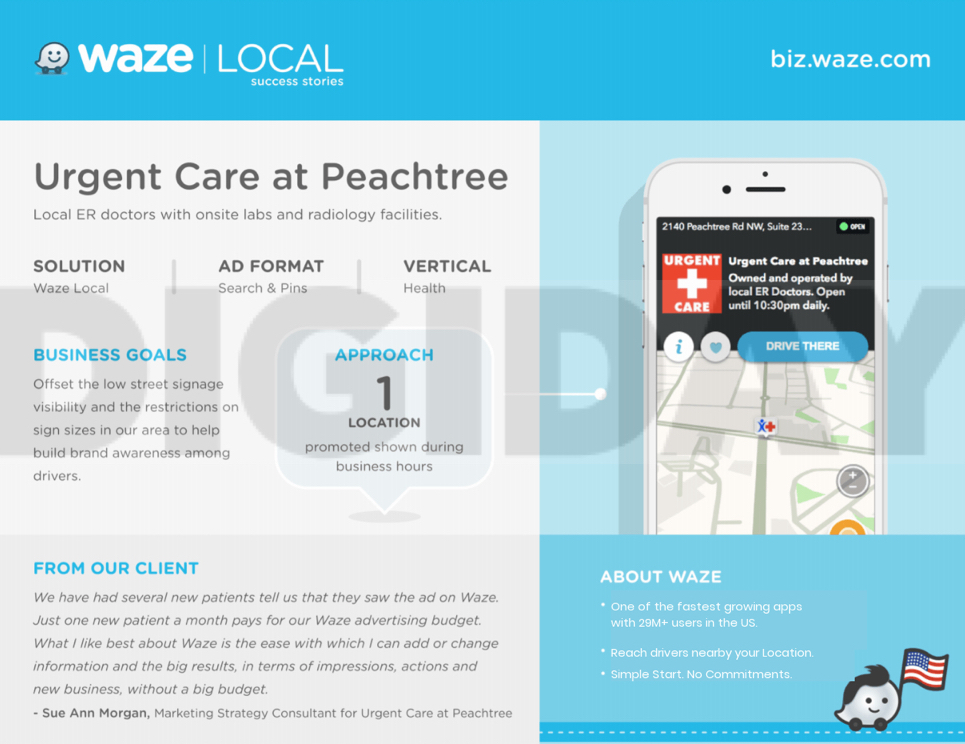
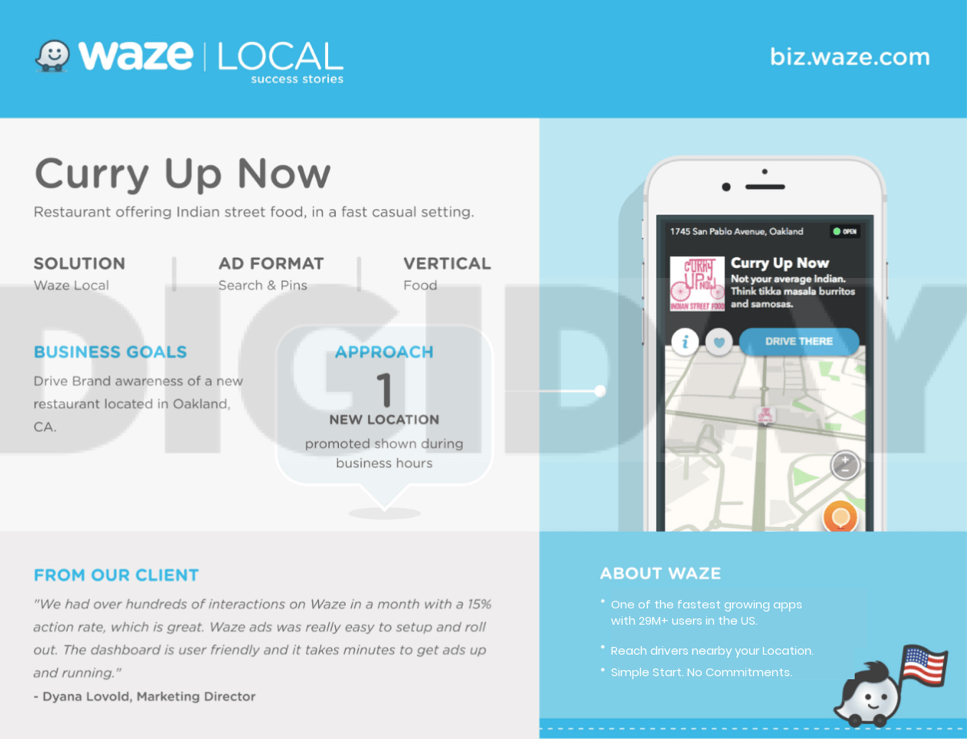
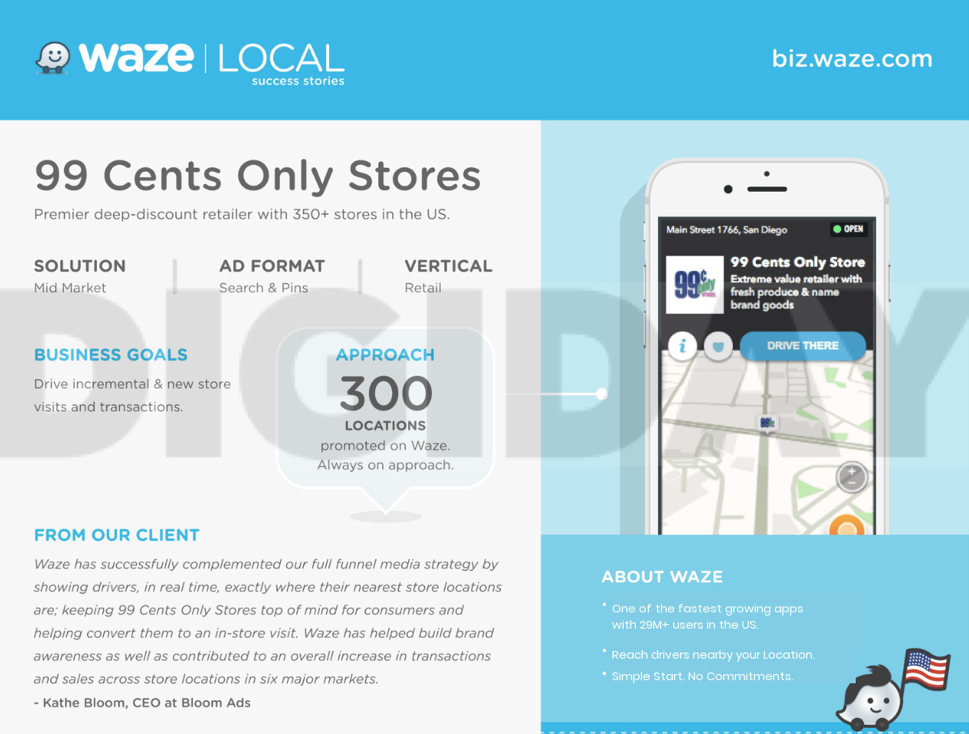
More in Marketing

Future of Marketing Briefing: AI’s branding problem is why marketers keep it off the label
The reputational downside is clearer than the branding upside, which makes discretion the safer strategy.

While holdcos build ‘death stars of content,’ indie creative agencies take alternative routes
Indie agencies and the holding company sector were once bound together. The Super Bowl and WPP’s latest remodeling plans show they’re heading in different directions.

How Boll & Branch leverages AI for operational and creative tasks
Boll & Branch first and foremost uses AI to manage workflows across teams.








